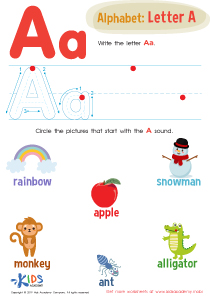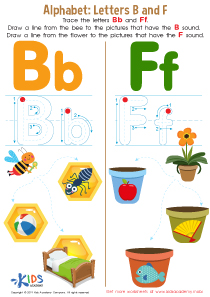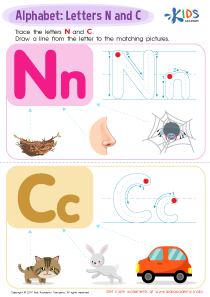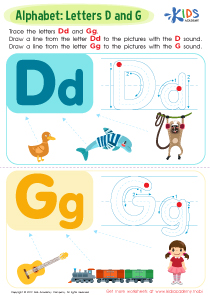Letter I Worksheets for Ages 6-9
4 filtered results
-
From - To
Discover the joy of learning with our "Letter I Worksheets for Ages 6-9." Tailored to enhance literacy and phonics skills, these engaging worksheets provide fun, educational activities that help children identify, write, and pronounce the letter 'I'. Designed by educational experts, each worksheet combines colorful illustrations and interactive tasks, making learning both effective and enjoyable. Children will love practicing letter formation, finding ‘I’ words, and honing their reading skills. Ideal for both classroom use and home learning, these worksheets are a perfect resource for parents and teachers to support children's early literacy development. Start exploring today!
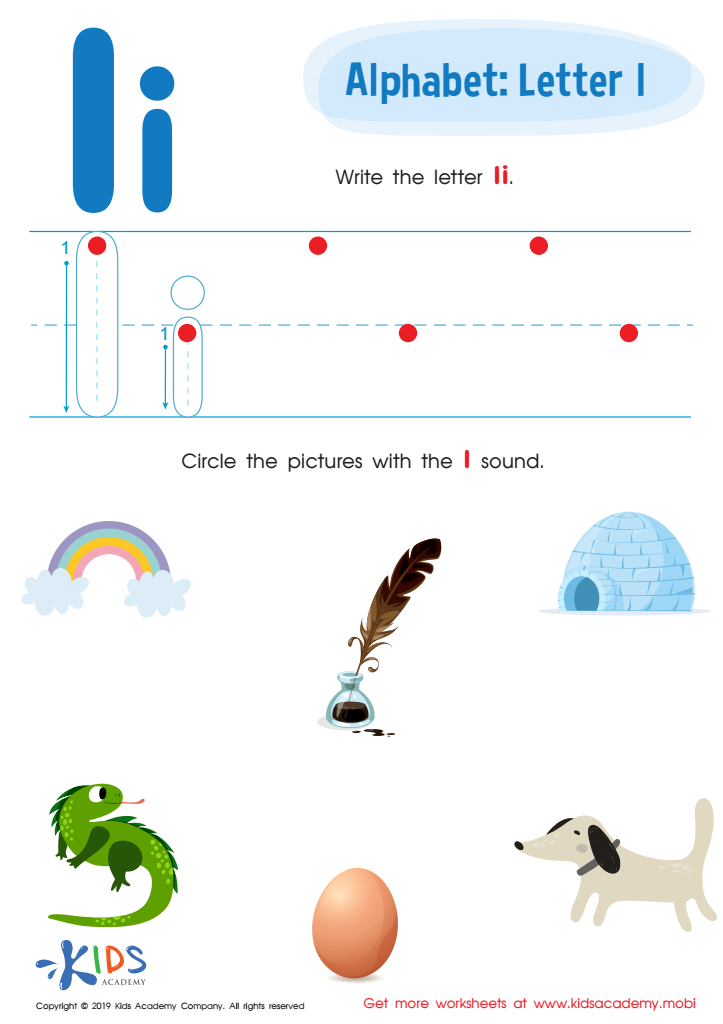

Letter I Tracing Worksheet
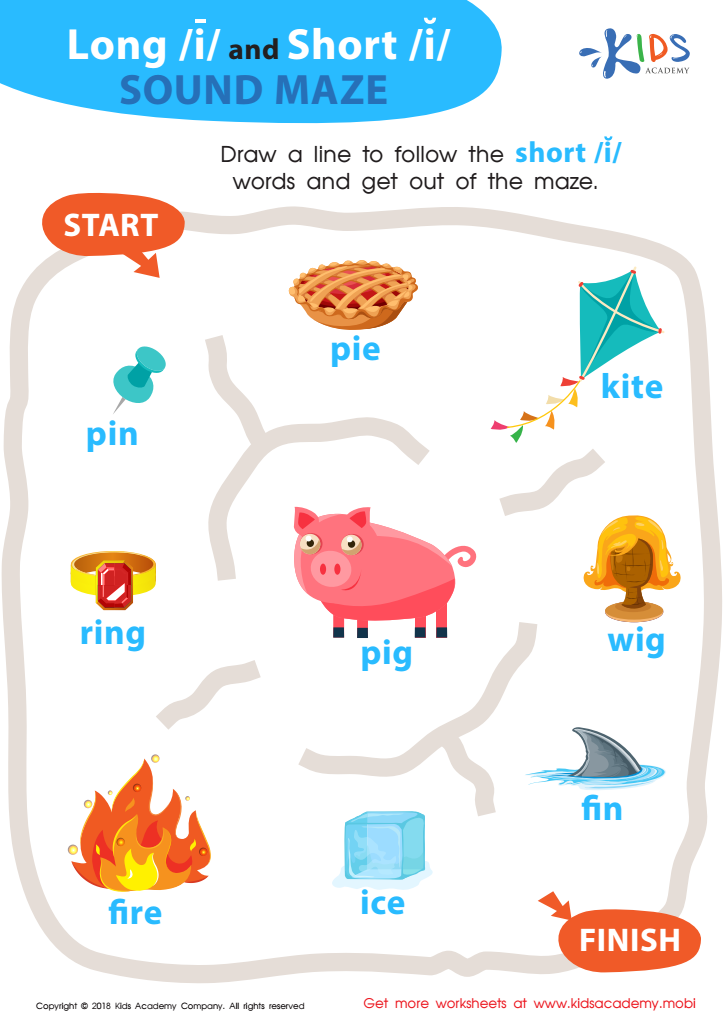

Reading: Long I and Short I Sound Maze Worksheet
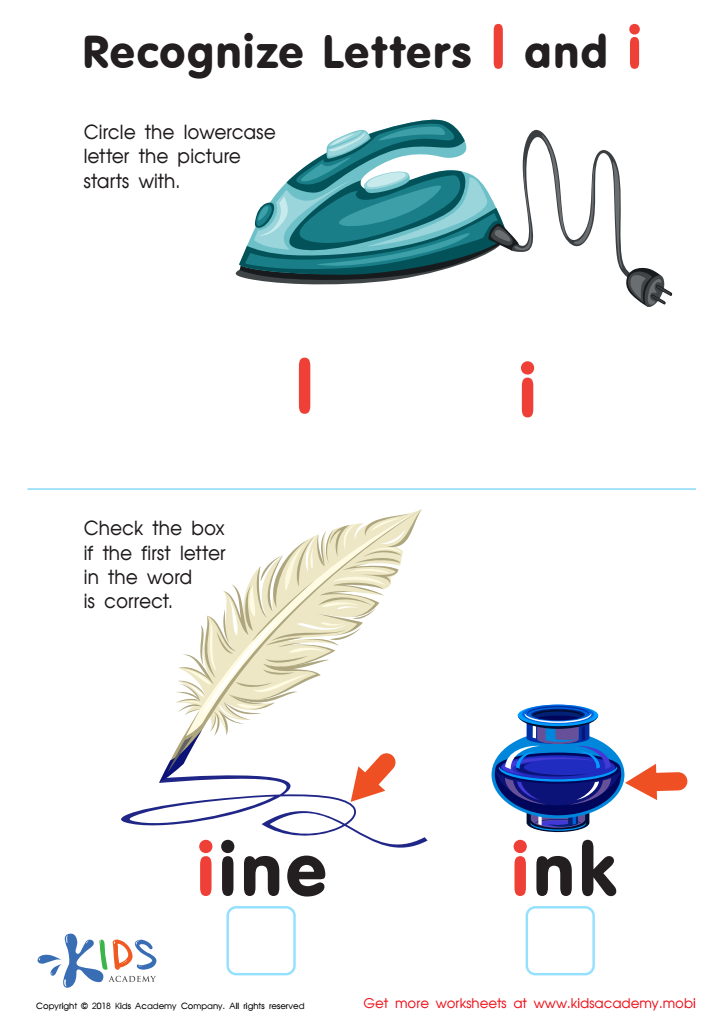

Recognize Letters l and i Worksheet
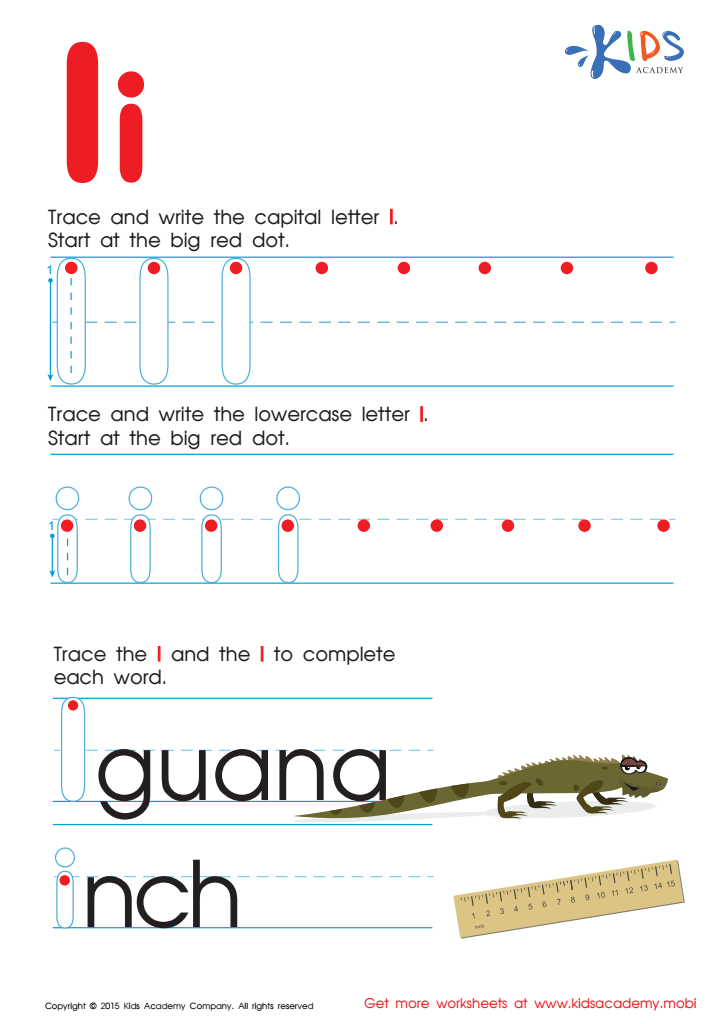

Letter I Tracing Page
The Letter I holds significant importance in early literacy for children aged 6-9 because it is foundational to their reading and writing development. By understanding and mastering the Letter I, children can recognize and decode more complex words and sentences, which is critical at this stage. This age group is at a crucial point where their increased phonics skills help to support their cognitive development and education progression.
The Letter I appears in many common words and can produce different sounds that children; hence, grasping its usage and pronunciation can greatly enhance their vocabulary and comprehension skills. Words like "I," "in," "it," and "ice" are part of everyday conversations and texts that children encounter. Being proficient in recognizing and using the Letter I boosts their confidence in spelling and writing, promoting academic success.
For early readers, focusing on the Letter I helps build foundational literacy skills, which are crucial for learning more complex reading strategies later on. Teachers and parents should care because literacy not only supports academic achievement but also critical thinking and communication abilities, necessary for future success. Engaging with the Letter I through playful activities can make learning enjoyable, fostering a lifelong love for reading and education.
 Assign to My Students
Assign to My Students






